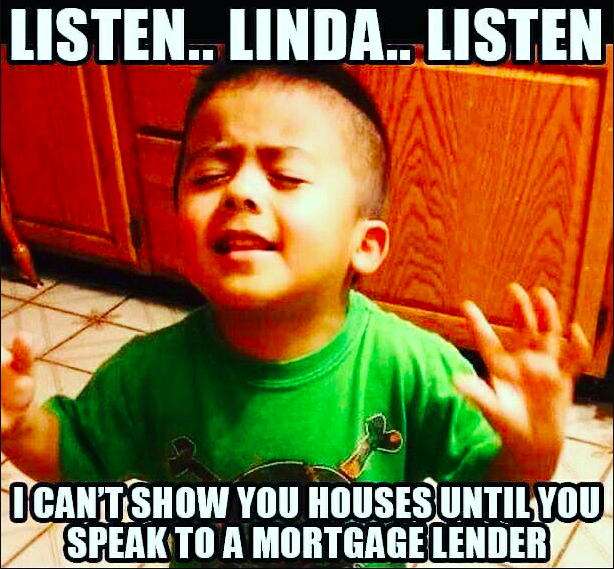Written by Erica Olavarria | May 14, 2018
Image “Money!” by Thomas Galvez, licensed under Creative Commons
It’s very important to find your lender and get pre-approved for a home loan before you start seriously looking at houses or submitting offers.
When you are talking to lenders, they will be able to explain many of the points below in finer detail. A good lender will guide you through the entire financing process, and work with your realtor to get your offer accepted and ensure a smooth transaction.
Image “Money!” by Thomas Galvez, licensed under Creative Commons
It’s very important to find your lender and get pre-approved for a home loan before you start seriously looking at houses or submitting offers.
When you are talking to lenders, they will be able to explain many of the points below in finer detail. A good lender will guide you through the entire financing process, and work with your realtor to get your offer accepted and ensure a smooth transaction.
1. Find lenders to talk to
Word-of-mouth recommendations are a great place to start. Your realtor will have recommendations of lenders they like working with. You can also ask your friends, family, or co-workers if they have recommendations based on their own home-buying experiences. Did they use a loan officer they really like and trust? Have they had good interactions with their lender? If they didn’t like them, that’s also valuable information. You can learn from their experience by asking what they didn’t like, and who you should avoid.
2. Talk to lenders
Just pick up the phone. You’re looking for someone who is easy to reach, answers your questions clearly, and makes you feel comfortable. If you can, schedule an in-person meeting. Take notes as you talk so you can review the conversation later. Here are some questions to get you started:
- What different loan programs are available to me? You’ve probably heard of the 30 year fixed mortgage, but there are actually many different options for buyers. Have a brief discussion about your financial situation and ask what they would recommend based on your situation. For each loan option, you should discuss interest rate, whether the interest rate is variable or fixed, downpayment amount required, years to repay, whether private mortgage insurance is required, and what your monthly payment would be.
- When should I lock in the interest rate, and how much does that cost? Interest rates are constantly fluctuating. Most lending institutions allow you to “lock in” a quoted interest rate for a specified period of time. They might recommend (or require) waiting to lock until you are under contract for a home, which allows you to lock for the least amount of time and may result in better loan pricing.
- What would my closing costs look like? This should open up the conversation to discount points, origination points, and other fees you will have to pay. Ask for clarification on any terms you don’t know.
- How fast can you guarantee closing? Oftentimes, sellers like the reassurance of a fast closing time, so they can get their money quickly and go about their business. However, it depends on the seller. Some prefer more time to move out of the house or get their affairs in order. Regardless, a lender who is capable of closing quickly is an asset when you start writing offers. The speed a lender can close usually depends on their operational efficiency. Oftentimes the lowest rate lenders will have bare bones operations staff which can lead to problems, delays, or the inability to close the deal at all.
- Is there a pre-payment penalty? Some lenders charge you a fee for putting extra money towards your mortgage. If you would like the option to pay off your mortgage early, you should find out if there are penalties for doing so.
- How strong is your pre-approval process, and how quickly can I get pre-approved? You’ll want to get pre-approved before you seriously start looking at houses (more on this in number 4, below). When discussing this with lenders, make sure that they will send you through underwriting – this means their team of underwriters will verify your job history, income, assets, and any other documentation you provide.
- When I make offers, will you call the listing agent and advocate for me? Some lenders make a point of calling the listing agent to emphasize their buyer’s strong financing. This lender recommendation will help assure the seller that financing will not be a problem during closing, which could make your offer more desirable against competing offers.
3. Pick your lender
After talking with several lenders, you probably have a good idea of who you like. Eliminate anyone you didn’t feel comfortable talking to, or with extra fees you don’t want to pay (pre-payment penalty, for example). When comparing hard numbers, be wary of using the Annual Percentage Rate (APR) to compare loans. The APR takes all of the costs associated with the loan and spreads them over the life of the loan. However, the APR is only an accurate measurement for comparison if you make strictly the minimum payment each month and hold the loan for its full term, which almost nobody does. If you sell your house, refinance, or put extra money towards the principal, the original APR is no longer accurate.
Instead of focusing on APR, look at the interest rate and fees. The interest rate of your loan will determine how much interest you pay over the life of the loan, which in turn will affect your monthly mortgage payment. The fees are all of the up-front costs associated with the loan, which will be rolled into your closing costs at the end of the transaction.
Instead of focusing on APR, look at the interest rate and fees. The interest rate of your loan will determine how much interest you pay over the life of the loan, which in turn will affect your monthly mortgage payment. The fees are all of the up-front costs associated with the loan, which will be rolled into your closing costs at the end of the transaction.
4. Get pre-approved
Now it’s time to get pre-approved! A pre-approval letter is a statement from your lender that you are approved for a specific mortgage amount, based on an underwriter’s review of all your financial information. This will also entail a hard inquiry on your credit report. The underwriting process usually takes a few days, but it could take several weeks. Don’t get pre-approval confused with pre-qualification, which is just an estimate of how much you can afford and does not send your information through underwriting. Make sure your lender is giving you a true pre-approval.
 Being pre-approved is important for several reasons. It gives you a hard upper limit on price range so you don’t waste time looking at houses over your budget. After you find a house you like, your pre-approval letter will strengthen your offer. But being pre-approved won’t necessarily make your offer stand out, because most savvy buyers these days are pre-approved. At the very least, you want to make sure you are on equal footing with your competition. Your pre-approval letter may have an expiration date on it. Ask your lender about their process for extending pre-approval if you end up needing more time.
Being pre-approved is important for several reasons. It gives you a hard upper limit on price range so you don’t waste time looking at houses over your budget. After you find a house you like, your pre-approval letter will strengthen your offer. But being pre-approved won’t necessarily make your offer stand out, because most savvy buyers these days are pre-approved. At the very least, you want to make sure you are on equal footing with your competition. Your pre-approval letter may have an expiration date on it. Ask your lender about their process for extending pre-approval if you end up needing more time.
 Being pre-approved is important for several reasons. It gives you a hard upper limit on price range so you don’t waste time looking at houses over your budget. After you find a house you like, your pre-approval letter will strengthen your offer. But being pre-approved won’t necessarily make your offer stand out, because most savvy buyers these days are pre-approved. At the very least, you want to make sure you are on equal footing with your competition. Your pre-approval letter may have an expiration date on it. Ask your lender about their process for extending pre-approval if you end up needing more time.
Being pre-approved is important for several reasons. It gives you a hard upper limit on price range so you don’t waste time looking at houses over your budget. After you find a house you like, your pre-approval letter will strengthen your offer. But being pre-approved won’t necessarily make your offer stand out, because most savvy buyers these days are pre-approved. At the very least, you want to make sure you are on equal footing with your competition. Your pre-approval letter may have an expiration date on it. Ask your lender about their process for extending pre-approval if you end up needing more time.
5. Find your new home!
With your pre-approval letter in hand, you are ready to sit down with your realtor and start submitting offers!
 Facebook
Facebook
 Twitter
Twitter
 Pinterest
Pinterest
 Copy Link
Copy Link
